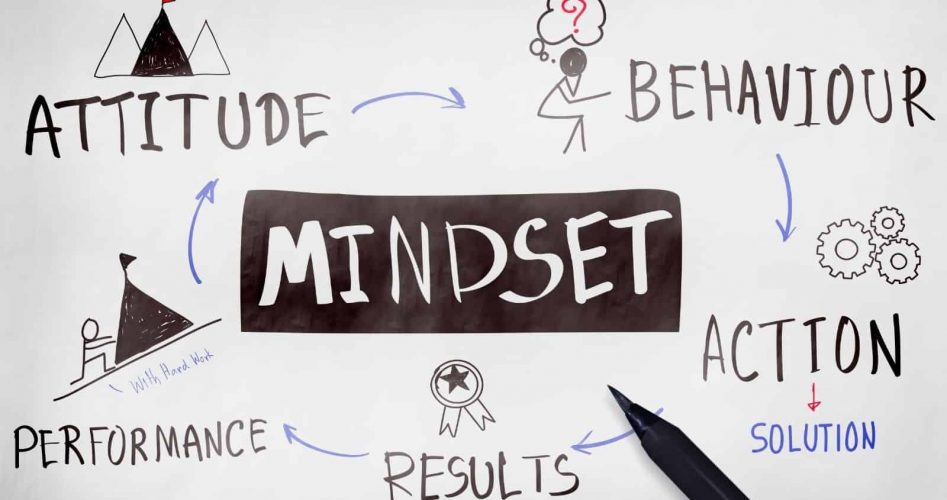Is your union secure, and you feel that you will never fall out of love? Don’t be so sure that you and your partner are solid. You’ve probably heard that 50 percent of all marriages in this country end in divorce.
The American Psychological Association backs up this statistic. Breaking up is hard to do, yet sadly many couples don’t make it beyond the five-year mark. Wouldn’t it be nice if there was a way to tell if you and your significant other will fall out of love long before it happens?
Thankfully, there are ways to tell if your relationship will last. You can examine things like your communication skills, bedroom habits, and how often you argue as indicators if you will make it for the long haul.
Here are thirteen signs that point to a rocky relationship that might not make it to forever.
1. You Take Your Anger Out on Each Other
Did you know that when you love someone, you are more likely to take your anger out on them? The key is that you interact more with your partner than you do anyone else, so it’s only natural to take out some of your frustrations on them. A study conducted in 2014 showed that this aggression is harmful to a relationship, and it pushes your lover away rather than bringing them closer to you.
2. There’s No Gratitude
Do you appreciate it when your partner spends the whole day cleaning and making a home-cooked meal for you? You should always pay attention to the smallest of things, and make sure you thank them for their efforts. Did you know that when you take a partner for granted, you undermine your relationship?
When you forget to say how thankful you are for their efforts, then you can compromise the physical and emotional health of the relationship. Gratitude should always be a part of your love language.
3. You Try to Change Each Other
One of the easiest ways to fall out of love is when a person won’t align with your perfect idea of a mate. Did you get together with your partner in the hopes that they would become someone else? Having a long-term relationship with someone who you want to change is never going to work.
Have you ever heard the old saying that a tiger doesn’t change their stripes? It’s because they can’t change who and what they are to appease you. Sure, some natural changes occur when you’re in love, but don’t expect to make them an entirely new person to fill your needs as it won’t work.
4. You Forgive, But You Don’t Forget
Every relationship has issues that require you to ask for forgiveness. While you forgive your partner, you must also forget the matter. Now, your brain can’t forget, but you can’t bring up the previous issues every time they make you mad in the future.
When one person is keeping score of the other’s wrongdoings, it sets a negative relationship dynamic. Part of loving and forgiving your spouse means that you release the issue and don’t use it to browbeat your partner with in the future.
5. There Are Trust Issues
When there are trust issues in a union, it makes for a rocky relationship. Sure, trust is not an easy thing to build, mostly if you’ve been burnt in the past. However, you must have a little faith in the person you are with if you want to grow old together.
When the foundation of your relationship is shaky from mistrust, then you can ensure that there will be physical and emotional problems with your union. At one point, you can almost guarantee that your partner will become tired of the trust issues and walk.
6. The Relationship is Full of Secrets
Do you have secrets that you keep from your partner? When you’re in a long-term relationship, it’s no fun to keep secrets. Sadly, many secrets cause you to lie.
When a partner tells the other that you can’t handle the truth, then they are saying that they don’t trust you with everything. Secrets in a relationship are one sure way to fall out of love.
7. There is No Compromise
What fun is a relationship if you never get any say? If you pick the restaurant this week, then your partner should get to choose next time. When one person dominates the union and makes all the decisions, it’s hard for the other person to feel important. Relationships are all about give and take, and compromise is essential.
8. You’re Not on The Same Page
For a relationship to be successful, you must both be going in the same direction. While you may think that love conquers all, it doesn’t. You must agree on the fundamentals, like if you want kids, saving money, and where you will live.
It’s easy to fall out of love when your goals don’t align. The differences between you and your spouse may start as a small annoyance, but they can fester into a significant wedge if allowed.
9. You Won’t Take Any Blame
Remember, as a kid, when nothing was ever your fault? You would always point your finger at your sibling or a friend to keep from getting into trouble. Sadly, this behavior can carry on with you into adulthood, causing you all kinds of problems.
You are not perfect, and your spouse can’t expect that you will be. However, it would help if you took your share of the blame with household and relationship issues. Let’s assume that you go over your grocery budget by $500 this month.
Rather than putting all the blame on your spouse, you must also take your part in the responsibility. Even if your partner does all the grocery shopping and cooking, you still have a hand in the matter. It may be that they need help with this aspect and rely on fast food and fancy eateries to cope with a lack of time.
Since groceries and eating is something you both enjoy, you must equally take responsibility in matters such as this one. Don’t be so eager to blame shift, or it’s one of the signs that you will fall out of love.
10. There Are Unrealistic Standards
Humans make mistakes, as no one is perfect. Your spouse is doing the best they can, but they are not infallible. If you expect your partner to be 100 percent perfect all the time, then you have unrealistic expectations.
When one person has such high requirements of the other one, it’s easy to become frustrated. Your partner will think that they can never please you, and you will feel that your partner doesn’t measure up. Stop playing the judge and quit expecting perfection.
11. You See Your Partner as Inferior
Relationships, where one person elevates their worth above the other is a recipe for disaster. When you have contempt for your significant other, it’s a telltale sign that divorce is looming. Do you continuously criticize what they do, show disrespect, are defensive, and stonewall them?
These are all indications that there is a deep rift in the union. A study in 2010 found that when one party shows content for the other, then it’s the “kiss of death” in a relationship.
12. Your Emotions Share No Similarity
Everyone has different emotions, but it can complicate things when conflict arises. If one person cries when they feel rage while the other hardly sheds a tear, it can be hard to be on the same page. Your emotional ranges don’t have to be the same, but they need to complement the other one.
For instance, if one person tends to shout and call names when you’re arguing, it can make the timid person who would never say anything wrong about you feel awful. You should have emotional similarities, or the imbalance can cause you to fall out of love.
13. You Stop Going on Dates
It takes a lot of hard work to keep a relationship alive, and it’s easy to fall into old routines. Once you commit to living together, you must try hard to make sure that romance doesn’t become automatic. Most couples waste their time on mundane tasks like grocery shopping, paying bills, or working.
However, everyday life can be far from romantic or exciting. You must make a special effort to ensure that you still do all those little things to keep the spark alive. Take your partner to the movies or out to a nice dinner.
You must put as much work into your relationship to keep your spouse as you did to attract them. Yes, you must still go on dates, even if you’ve been together for 20 years.
Final Thoughts on Recognizing the Traps That Cause Couples to Fall Out of Love
Do you see things on this list that show that you are in a rocky relationship? You can alter the course of your union by making some changes now. If you can’t seem to get on the same page with your partnership, then ask a counselor to help you sort things out.
It’s easy to fall out of love when massive issues make everyday life together challenging. So, if these issues exist, then you must work hard to alter then for the sake of your relationship.









